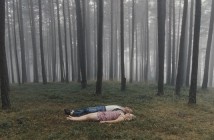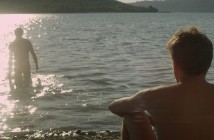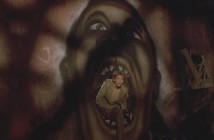Oh dear, oh dear, oh dear. It was sure to happen at some point that This Week on Demand would find itself lost for something great to recommend, but did it have to happen so soon? A notably dull seven days offers us now precious little in the way of quality cinema, the majority of titles below listed at best dull, at worst brain-numbingly awful. Of course, you can always take a trip back to previous instalments to catch up on whatever you might have missed should you be as underwhelmed as I by the dirge of mediocrity this week has feebly proffered. There are some redeeming entrants though, as ever, this week’s two distinct highlights documentaries focusing on the world of art. Trust Martin Scorsese to rescue us in our time of need, eh?

Watch it here
Rather interestingly the only Iain Banks novel to be translated to film, Complicity also happens to be among the author’s weaker works. It certainly comes across as such in this consistently dull film, following a pretty standard serial killer pattern and doing very little to avoid the many pitfalls encountered along the way. Focusing on an investigative journalist who receives a series of mysterious calls from a man claiming to know the truth behind the deaths of a number of wealthy businessmen, Banks’ typically angry political flair is dulled down in favour of an underwhelming whodunit. Johnny Lee Miller is a reasonably good lead, he’s simply not in a reasonably good movie. The streets of Edinburgh and the hills of the Firth of Forth are the treated with the same heavy dankness the plot lacks, leaving Complicity little more than a stifled sampling of some of its original author’s lesser ideas. SO-SO.

Watch it here
Passing judgement on a film viewed in conditions so different to those intended by the director as a dubbed copy feels quite wrong, the new audio in essence turning it into a new film entirely. Even despite Netflix’s awful choice of American dub, though, one gets the clear sense that Ringo Lam’s Full Contact just isn’t a terribly good film at all. Featuring what must be the most ear-achingly annoying female character ever put to film, it’s a typical story of deception and deceit in the Hong Kong underworld, involving numerous heists, betrayals, murders, and a whole host of assorted plot twists it’s tough to keep up with simply because none of the characters make it worth caring about. Uninventive action adds nothing to proceedings, nor do the multiple irritating characters whose original idiocy shines through even with the coat of new audio. It’s a shame it’s not available as intended, but it’s clear Full Contact is rubbish in any language. AVOID IT.

Watch it here
Appreciator of art or not, the one thing we can all admire is the ferocious dedication of Herbert and Dorothy Vogel, who together amassed almost 5,000 pieces of minimalist, abstract, and conceptual art and housed the lot in their small one-bedroomed Manhattan apartment. I’ll be the first to confess my philistinism when it comes to the world of modern art; what’s particularly interesting in this documentary is the way director Megumi Sasaki appears to cater to this particular viewpoint. Coyly shining a light on interviewees who see the Vogels in less of a positive light and a humourous anecdote whereby the couple mistook some discarded masking tape as part of a piece, she wonders if perhaps they haven’t dedicated their life in vain. Witnessing the way they almost telekinetically complete each other’s sentences and happily sit among their vast family of paintings and sculptures, I think the answer to that is perfectly clear. RECOMMENDED.

Watch it here
It’s the mark of a true talent, being able to elevate a facetious plot solely by the merits of a central performance. James Spader is a man with that talent, his turn in the otherwise awful Jack’s Back ensuring it’s never not a little fun to watch, if only guiltily so. Playing a doctor who becomes a suspect in the case of a serial killer replicating the murders of Jack the Ripper to celebrate his centenary and then his twin brother (quelle surprise!) when he is himself murdered, Spader has buckets of fun undergoing hypnosis, questioning his own sanity, and rapidly pursuing mysterious strangers through the streets of a rain-soaked city. It’s not very good, of course, but Spader is just one of those actors so immitigably watchable that you never focus on that fact during the running time. Distinctly televisual in its aesthetics, notably derivative in its plotting, absolutely average in its performances, this is one for true Spader lovers only. SO-SO.

Watch it here
A subgenre unto itself, the story of institutional abuse and survival of the fittest in a juvenile prison (or borstal, boarding school, summer camp, etc.) is one that should be overworked past the point of functionality, yet Marius Holst makes it feel entirely new with King of Devil’s Island, the true story of an uprising in Norway’s Bastøy Prison during the 1920s. Doubtlessly a large part of the material’s success can be attributed to the ever wonderful Stellan Skarsgård as the warden, a rather cliché role but one he nonetheless invests with a compassionate humanity that does much to reinforce the moral turpitude on which much of the film’s thematic impact hinges. Benjamin Helstad is just as fine as C19, the newest inmate and the eventual catalyst to a complete overhaul of the prison’s running order. Eye-catching cinematography finds poetry in the perpetual snowfall; the people and their actions may be ugly, but the locations most certainly are not. RECOMMENDED.

Watch it here
An utterly worthless, dull, and dumb action movie funded most likely only because its usually decent lead players made the mistake of signing up to it, Last Assassins is a remarkably unremarkable amalgamation of crude characters, lifeless set pieces, and maniacal moustachioed villainy. Nancy Allen is beyond awful as a former secret agent whose theft of top secret information motivates her old employer to kidnap her daughter and demand his disc back. With the arbitrary love interest, an army of meat-headed thugs (one of whom is a sure candidate for worst actor ever), and an unbearably atrocious script, Last Assassins is not just stupid, it’s stupid without ever being even remotely fun. Henriksen is a very fine actor when he wants to be, though given his choice of material you’d be forgiven for not realising that. Atrocious tosh that ignominiously wastes what little talent it manages to rope into its useless proceedings, it’s a film entirely devoid of all merit. UNWATCHABLE.

Watch it here
An aged ensemble leads an unlikely crime caper in Never too Late, following the endeavours of three retirees attempting to rescue their comatose friend from the wicked ploy of his retirement home’s owner to steal his funds with the power of attorney he deceitfully obtained. Rather a nonsensical story, it’s given decent life by a talented central cast, among whom Cloris Leachman and Olympia Dukakis are sure standouts. For all its effective humour, though, it is an immensely mild work that, when not garnering a laugh or two, makes for rather dull viewing. Shot as though a television sitcom, it does constantly feel like a special edition episode of some long-running daytime TV series. Not a bad thing in itself, that doesn’t strip the film of all entertainment value, and there’s a certain gleeful charm in seeing the septuagenarians bustle about with the reckless abandon of people less than half their age. It’s all a bit of fun, if a touch light and lifeless. SO-SO.

Watch it here
Much in the same way that television’s advent had cinema scrambling with widescreen technologies to remain unique and relevant, film’s first appearance posed a challenge to photography and painting to overcome the threat from an exciting new medium. Produced by and featuring Martin Scorsese, Picasso and Braque Go to the Movies juxtaposes the growth of cubism in the work of the two noted artists with the early films of Georges Méliès and Thomas Edison, among others. Scorsese—hose animated excitability while discussing cinema is never not delighting to behold—and his fellow interviewees trace a lineage of film’s earliest evolutions and draw parallels to the ways in which the world of art branched out in formalist experimentations in response. Fascinating and suitably short, it’s aided by a vast quantity of archive material and learned experts espousing their views. More a collation of individual opinions than a single concrete hypothesis, it’s a tad inconclusive but never not interesting. RECOMMENDED.



